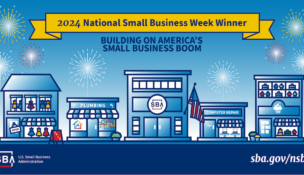Preparing for post-pandemic work: Are you career-ready?
Maybe you need to “pivot.” Maybe the future of your industry is looking iffy. Maybe you could use a skill refresh?
Linda Van Doren //August 9, 2021//


Preparing for post-pandemic work: Are you career-ready?
Maybe you need to “pivot.” Maybe the future of your industry is looking iffy. Maybe you could use a skill refresh?
Linda Van Doren //August 9, 2021//
If you lost a job or had to close the doors of your business during the pandemic, you know firsthand how COVID-19 has affected work life. Maybe you need to “pivot.” Maybe the future of your industry is looking iffy. Maybe you could use a skill refresh?
You’re in good company. According to research by the McKinsey Global Institute, some 17.1 million U.S. workers will need to change professions by 2030, in part, because the response to COVID-19 has accelerated the pace of change already in motion for working people.
These changes include how individuals and teams have learned to survive and thrive by working remotely. Businesses have ramped up e-commerce and delivery options to meet consumer demand for “contactless” shopping. Plus, companies and organizations are making hefty investments in automation to save money and streamline service—and that’s only going to continue.
What does that mean for you?
In Colorado, early job gains are likely to appear in areas that experienced the biggest pandemic losses, according to the 2021 Colorado Business Economic Outlook. Though the report doesn’t predict a return to pre-pandemic employment levels this year, the hardest-hit sectors, including leisure and hospitality as well as trade, travel and utilities are anticipated to experience the most growth, adding nearly 34,000 jobs in food, travel, retail and other categories.
Other areas identified for short-term growth in state include private education and health services, financial activities (which encompasses finance, insurance and real estate), manufacturing and professional and business services such as high-tech, management and waste management and remediation.
Is it time to move up the arm of the K-shaped economic recovery?
Overall, though, the economic recovery from the coronavirus is looking K-shaped, which means people at the upper end of the economic spectrum are doing better while those on the lower-end are struggling.
Low-wage jobs, too, may be some of the most at risk in the future. Did your grocery store or Costco install self-service checkout? Did you order restaurant food from an app? Though nobody is predicting the demise of food and retail jobs, McKinsey’s “The Future of Work After COVID-19” report foresees long-term decreases in these roles (disrupted by automation), while jobs in transportation (e-commerce delivery), logistics and warehousing should increase along with health sector, STEM-related and management careers.
“Economic disparities are widening,” explained Dr. Linda Van Doren, vice president of Education at Emily Griffith Technical College. “The top arm of the K is getting higher and the lower arm is getting lower. Workforce development boards and government agencies are concerned and working with industry and education providers to address these inequities. How can we meet the talent pipeline needs of the workforce and ensure we are looking at the talent pipeline differently to bust those broken systems that have been accelerated during the pandemic?”
One way is by guiding people looking to reskill to choose career pathways as opposed to single programs. For example, rather than viewing a Nurse Assisting certificate, which qualifies individuals to work as a CNA, as an endpoint, Van Doren explains, students can use their certificate as a first career step they can leverage with additional training into higher-wage roles in Licensed Practical Nursing (LPN) or Registered Nursing (RN).
Late last year, Emily Griffith launched a Student Navigation Center through which students with work with career navigators to focus on one of six career paths during the admission process: Skilled Trades and Apprenticeship, Health and Wellness, Service Industries, Information Technology and Computer Science, Business and Office Professionals and English and Immigrant Services. The College also offers students career coaches to help students connect to internships and jobs in their chosen field, during their program and after they graduate.
Meskerem Berka, a flight attendant before she came to the United States, immigrated from Ethiopia to Denver and attended Emily Griffith to improve her English. With the goal of becoming a nurse, she began stacking credentials starting with Emily Griffith’s Nurse Assisting certificate, followed by her associate’s degree from Arapahoe Community College and then her bachelor of science in Nursing from the University of Northern Colorado. She’s now in the final stretch of completing a master’s in health care administration. Berka works as a nurse a Spalding Rehabilitation Center and has recently returned to Emily Griffith to teach in the Nurse Assisting program.
“If I can motivate just one person, it’s really huge,” she says. “If I can do it, you can do it, too.”
To additionally prepare people for new opportunities, Emily Griffith is also enhancing its apprenticeship offerings.
Apprenticeships are typically no cost and give students years of paid on-the-job training, transferrable college credits and mastery in highly desirable skills such as carpentry, plumbing, bricklaying, ironwork and more. “With apprenticeships,” Van Doren says, “apprentices are earning and learning at the same time.”
For people who are looking at changing careers, Emily Griffith can provide a certificate and apprenticeships that lead to life-sustaining professions as well as college credits to apply toward future education, Van Doren says. “We are the leader in the short-form, industry- aligned certificate credentialing space. And we are adapting in that space.”
Linda Van Doren is the Vice President of Education at Emily Griffith Technical College.

























